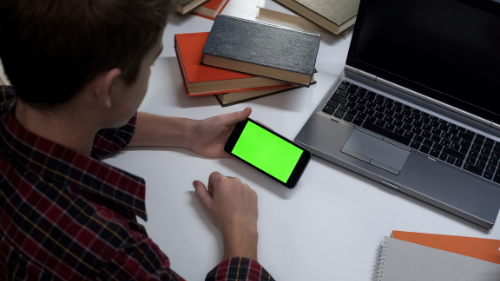Excessive Screen Time and Its Invisible Effect on Emotional Development
Screens have become an inseparable part of daily life: phones, tablets,
computers, and televisions are with us from morning until night. While they
bring convenience, learning, and entertainment, their excessive use comes at a
hidden cost. One of the most concerning is the impact on emotional development,
especially in children and adolescents.
How Does Excessive Screen Time Affect the Emotional World?
Emotional development requires real-life experiences: playing, talking, getting
bored, resolving conflicts face to face. Spending too much time in front of
screens reduces these opportunities and limits the learning of basic social
skills.
When interactions happen mainly through a device, the richness of
nonverbal communication—eye contact, gestures, tone of voice—is lost. This
makes it harder to develop empathy and the ability to interpret both one’s own
emotions and those of others.
In addition, overexposure to digital stimuli alters attention,
frustration tolerance, and the ability to handle boredom. The instant
gratification that screens provide can make real life—slower and more
complex—feel less appealing. Over time, this leads to anxiety, low self-esteem,
and difficulties in regulating emotions.
For young children, the impact is even more delicate: language delays,
self-control issues, and increased irritability. In adolescents, it can show up
as isolation, sleep problems, and emotional dependence on technology to feel
connected.
Signs That Screens Are Affecting Development
It’s not about eliminating technology, but about recognizing when its use has
stopped being healthy. Some warning signs include:
- Irritability
when disconnected: sudden mood changes
when screen time is limited.
- Social
isolation: preference for digital life over in-person
interactions.
- Concentration
problems: difficulty focusing on schoolwork or
screen-free activities.
- Sleep
disturbances: staying up late gaming or scrolling through
social media, with consequences for daily performance.
- Low
frustration tolerance: little patience when
faced with waiting or everyday difficulties.
- Loss
of interest in physical or creative activities:
giving up hobbies or sports once enjoyed.
These signs indicate that balance has been lost and that screens are
having a direct effect on emotional well-being.
Technology doesn’t have to be the enemy of development. With clear
limits, guidance, and a balance between digital and real-life experiences, it’s
possible to enjoy the positives without falling into dependency.
If you notice that screens are taking up too much space in your
children’s emotional lives—or even in your own—professional support can provide
strategies to restore harmony. We invite you to book a session with us and take
the first step toward a more conscious and healthy use of technology.



